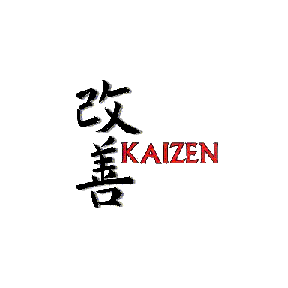 People often spend more time at work than at home. If a workplace is not fun or, at the very least, pleasant, people can dread it. Happier workers are also more productive, or so conventional wisdom holds.
People often spend more time at work than at home. If a workplace is not fun or, at the very least, pleasant, people can dread it. Happier workers are also more productive, or so conventional wisdom holds.
Companies try all sorts of ways to boost morale. In fact, we talked about how to keep your team motivated, here on this blog as well.
Google is known to be a great place to work. It was named the best company to work for by Fortune for the seventh year. Employees get free haircuts, onsite doctors and laundry, shuttle buses, and more.
While your company may lack the abundant resources Google has, Inc.com staff writer Laura Entis, shares a few key company practices that can still be applied to your business.
Entis suggests you have employees fill out surveys to collect data and if it challenges current company policy, investigate and find a better solution.
For instance, founders Larry Page and Sergey Brin presumed you could run a company where no one was the boss of anyone else.
Feedback from company surveys indicated the opposite, and now Google understands the value of middle managers.
Don’t just give employees perks. There should be a reason for each one.
For instance, Google noticed many women were leaving the company, which affected their bottom line because of the costs associated with hiring and retraining employees, according to a Slate article.
When they looked into the problem, they discovered it was a new mother problem. Women who had recently given birth left at twice the average departure rate.
To help with this problem, Google changed their maternity leave to five months off with full pay and full benefits. New mothers are also allowed to split up that time however they wish. Google also offers seven weeks of new parent leave to its workers around the world.
Something as simple as the length of the tables in a lunchroom or the amount of time you spend in line (if you’re company has a cafeteria) can have a big effect.
Entis says researchers hired by Google found the ideal lunch line wait should be three to four minutes, which is long enough for people to talk and make new connections, but short enough to minimize wasted time.
A longer lunch table enables you to branch out more than a table that seats four people. “Small, inexpensive changes can have a big effect on employee satisfaction,” says Entis.
In general, workplaces that make us feel included, valued, and cared for bring out our best efforts. Any workplace can be fun, but it needs to come from the top. It takes a little creativity and effort, but it is worth it in the end.
What are some of the biggest stressors you meet in your workplace? How do you get past them?
Image: FindYourSearch
 For many years, Microsoft ignored the Internet.
For many years, Microsoft ignored the Internet.
Google ignored social media.
Beverage companies ignored bottled water.
Record labels ignored digital media.
And, suddenly, all were forced to sit up and take note.
In each of these cases, it's impossible to blame one CEO or one product manager. Each of the companies, or industries, were so mired in their own "this is the way things have always been done" they were all to blame.
It is pretty easy to see how each of these examples were blinded.
Microsoft was making personal computers not attached to anything but a person's desk. Google looked at social networks, such as MySpace, and could see how it couldn't be scaled...so they ignored them. Beverage companies thought a product had to be made. The record labels made their money from producing albums. And they all missed huge opportunities.
If you want to challenge the way you've always done things so you don't end up missing opportunities like these examples, ask yourself the following questions:
What do you know about your customers?
What do you think your customers want/need?
What do you know about your industry?
What do you know about your competitors?
What trends are happening within the industry that you've chosen to ignore?
What are some things your competitors are doing that you've chosen to ignore?
What if the things you know to be true aren't true at all?
It's easy to go to work every day, do things the way you've always done them, then go home to your family each night. Perhaps your business will even continue to grow.
Or you can choose the hard way: You can challenge your thinking, once a quarter. Ask your leadership team to work with you and challenge their thinking. Discover one diamond in the rough each quarter and vow to work on it. Soon you will be your industry's Facebook or iTunes.
How do you challenge the status quo?
 For some people, "organizational culture" calls to mind images of companies such as Google, with elaborate perks intended to lure the best talent and keep it there.
For some people, "organizational culture" calls to mind images of companies such as Google, with elaborate perks intended to lure the best talent and keep it there.
For others, it's the idea of an organization such as Zappos, which wants every employee to meet and keep lifelong friends at work.
For many Lean managers, the first company that comes to mind is Toyota, known for a kaizen culture so strong that death from overwork has become a problem.
The layperson often assumes Lean organizations are low on culture, because many popular definitions of organizational culture involve spending which would be considered wasteful by Lean managers.
Not so! Culture building is, in truth, critical to the success of Lean organizations, as demonstrated by Toyota.
Every organization wants a "culture of excellence," to the point that this oft-repeated jargon has become almost laughable. (more…)
